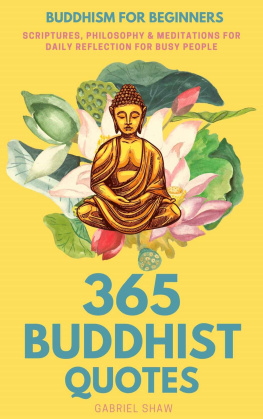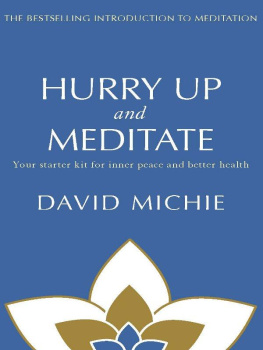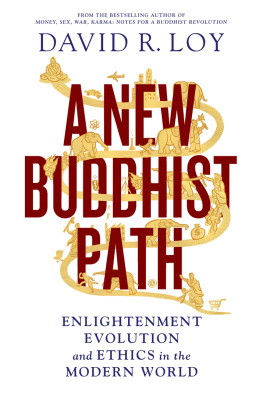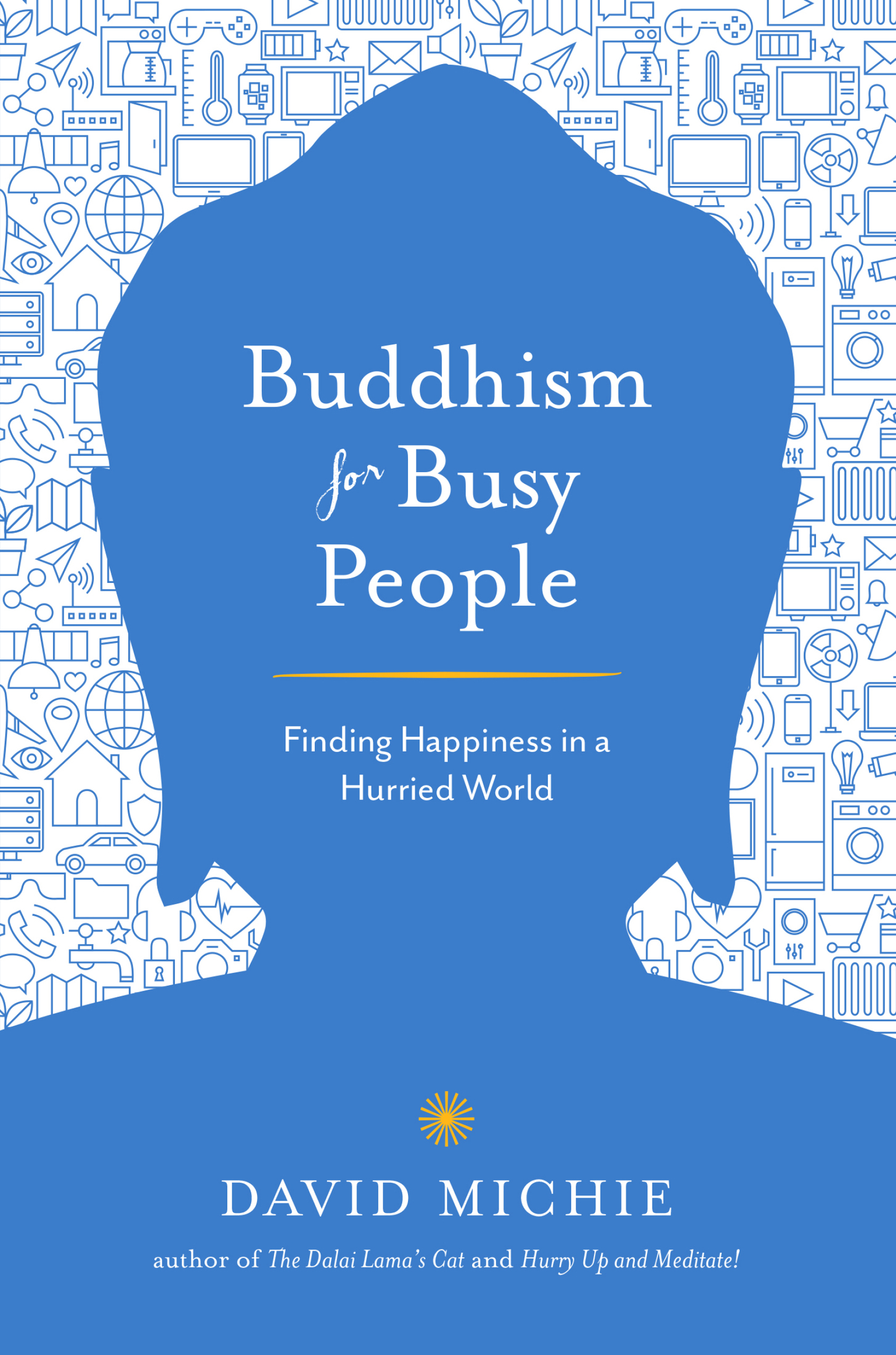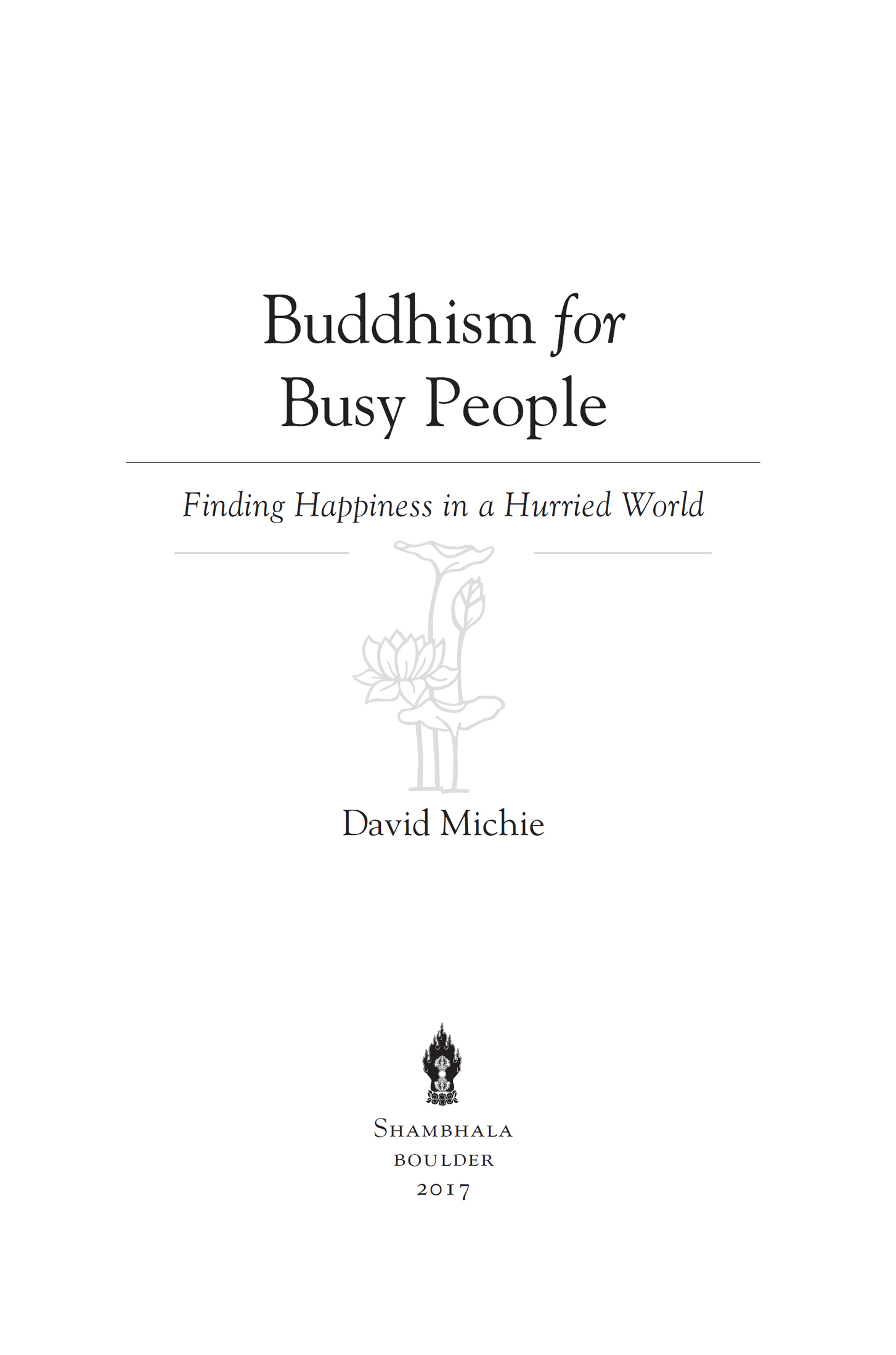Contents
Shambhala Publications, Inc.
4720 Walnut Street
Boulder, Colorado 80301
www.shambhala.com
2008 by Mosaic Reputation Management
Introduction 2017 by David Michie
All rights reserved. No part of this book may be reproduced in any form or by any means, electronic or mechanical, including photocopying, recording, or by any information storage and retrieval system, without permission in writing from the publisher.
Cover art: Anna_leni/Shutterstock.com
Cover design by Kate White
The Library of Congress catalogues the previous edition of this book as follows:
Michie, David.
Buddhism for busy people: finding happiness in an uncertain world / David Michie.
p. cm.
Previously published: Crows Nest, Australia:
Allen & Unwin, 2004.
Includes bibliographical references and index.
ISBN 978-1-55939-298-3 (Snow Lion edition)
ISBN 978-1-61180-307-9 (Shambhala edition)
eISBN9780834840430
1. Religious lifeBuddhism. 2. BuddhismDoctrines.
3. Happinessreligious aspectsBuddhism. I. Title.
BQ 5405. M 53 2004
294.3444dc22
2008001961
v4.1
a
Contents
Acknowledgments
I GRATEFULLY ACKNOWLEDGE Geshe Acharya Thubten Loden from whose comprehensive book Path to Enlightenment in Tibetan Buddhism (Melbourne: Tushita Publications, 1993) I have drawn many of the translated verses of Shantidevas great classic Bodhicharyavatara.
I would also like to acknowledge H.H. the Dalai Lamas The Path to Enlightenment, edited and translated by Glenn H. Mullin (Ithaca, N.Y.: Snow Lion Publications, 1995), from which I have sourced direct commentary by His Holiness.
Introduction to the 2017 Edition
T WELVE YEARS AFTER Buddhism for Busy People was first published, I am delighted by the way the book continues to resonate with readers around the world. I regularly receive heartwarming messages from people telling me what the book has meant to them. Some even share ways in which they decided to change elements of their liveslarge or smallafter reading the book.
One middle-aged man picked up the phone to call his sister from whom he had been estranged for many years, leading to a family reconciliation. A young woman found the courage she needed to open a shop selling inspirational books and self-development programs. Then there was the couple who threw out high-flying corporate jobs to create an animal sanctuary.
I suggest none of these things in this book, and I certainly claim no credit for the brave and transformational decisions of others. What they illuminate, however, are the ways in which the practices first offered by Buddha two and a half thousand years ago still have a direct and powerful relevance to us today. Exactly how they may impact each one of us is part of an unfolding journey of discoveryone that grows all the more life-enhancing with each passing year.
Both the title and subtitle of this book were chosen to reflect the zeitgeist of the early years of this century. Mobile phones and the Internet had recently become ubiquitous. We had just lived through the bursting of the dot-com bubble and the 9/11 attacks. Scientists started talking about climate change. Many of the reassuring certainties of life seemed to be dissolving beneath our feet. We had never felt busier.
Fast forward to the present, and the pace of life back in the early 2000s seems positively quaint. Life before Facebook? Mobile phones that werent online? What do you mean you didnt check the sales spreadsheet before you came into work this morningI forwarded them to you last night?!
The convergence of mobile technology and the Internet has fundamentally changed society, as we can observe at a glance on any city street, railway carriage, or school yard. Along with the demands of the real world, a global, twenty-fourhour virtual world has insinuated itself into many peoples lives with compelling potency.
While there is no doubt that we have taken a giant leap forward in connectivity, access to information, and a myriad other ways, all this has come at a cost. A growing body of research shows that high usage of social media degrades our attention spans. We are less able to recall things and are more easily distracted. A recent study showed that the average teenager checks his or her social media one hundred times a day. Fear of Missing Out (FoMO) and the need to project an often impossibly enviable version of oneself online has piled a new set of pressures onto those of an age when trying to arrive at a resolved, adult identity is fraught enough. Is it any wonder that anxiety among teenagers is at sky-high levels?
Even those of us who should know better sometimes find it hard to avoid the siren calls of social media. Sitting to meditate, reading a mind-improving book or even a blog is something we may promise ourselves we fully intend to doafter we have checked our social media feed. Its hard to ignore the paradox that, at a time in history when its never been easier to access the spiritual wisdomfor millennia the preserve of an elite fewwe have never been less interested or mentally capable of using it!
The digital revolution has been one of the game changers of the past decade, ramping up our busyness and sense of volatility. But it hasnt been the only one. The Global Financial Crisis has been an earthquake inflicting massive damage on whole industries and communities, which continues to reverberate around the world today. September 11 set off a chain of events leading to the rise of a new breed of do-it-yourself terror groups, bringing the prospect of violent and random massacres of ordinary people into our own cities. And evidence of climate change suggests that extreme and unseasonal weather patterns are now part of our new normal.
Fortunately for those with an interest in a permanent solution to well-being, none of these developments need be as worrisome as they may appear. In fact, there is nothing quite like a sense of deep disillusionment with conventional reality to prompt us to ask the questions that really matter. Questions like: Is there an enduring source of happiness I can rely on through all this frenetic activity and upheaval? If I cant change reality, can I at least change the way I experience it? Who, really, is this person called me, and is there any point to my life besides enjoying whatever pleasures I can find along the way?
The reason that Buddhas teachings have continued to be handed down to us through the centuries is because they offer such exciting, radical, and perspective-shifting insights. While those insights havent changed, what has changed, particularly in recent years, are the advances made by scientists, which have brought about a fascinating convergence of East and West, ancient and contemporary.
Yes, cognitive therapists now confirm, it is not events in the outside world that make us feel elated or miserable, but the way we interpret them. Medical researchers are now able to attest to the significant, holistic, multifactorial range of benefits delivered by meditation, not least being the capacity to shift our set point for happiness. Neurobiologists can certainly confirm that what we see, hear, and perceive of the outside world is not so much what is out there as it is a projection of our minds. And quantum scientists use almost identical language as Buddha himself to describe the ultimate nature of reality as well as our relationship with it.




